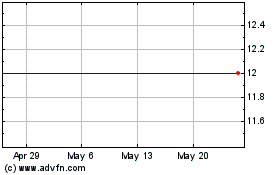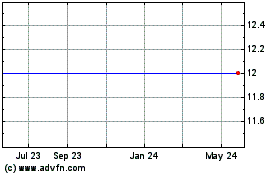Forest Laboratories, Inc. & Gedeon Richter Announce Positive Phase III Results with the Investigational Antipsychotic Caripra...
October 05 2011 - 2:00AM
Business Wire
Forest Laboratories, Inc. (NYSE: FRX) and Gedeon Richter Plc
today announced preliminary top-line results from a Phase III
clinical trial of cariprazine (RGH-188), an investigational
antipsychotic agent, in patients with acute mania associated with
bipolar I disorder. For the primary endpoint, the Young Mania
Rating Scale (YMRS), the data showed that cariprazine-treated
patients with acute manic episodes experienced significant symptom
improvement compared to placebo-treated patients seen as early as
day four of treatment and at each subsequent time point studied.
Further analyses of the data will be completed in the coming weeks.
Cariprazine is also being investigated in clinical studies for
patients with schizophrenia, bipolar depression, and as an adjunct
treatment in MDD.
“These exciting positive Phase III results in patients with
bipolar mania demonstrate the potential of cariprazine as a novel
antipsychotic agent,” said Marco Taglietti, MD., Senior Vice
President of Research and Development and President, Forest
Research Institute. “We will continue to investigate the
therapeutic benefits of this novel dual acting D3/D2 compound
across other CNS disorders as well.”
"We are encouraged by the positive top-line results shown in
this Phase III study. These data together with those of the Phase
II program prove that cariprazine provides a clinically meaningful
improvement with good tolerability in patients with acute mania
associated with bipolar I disorder. It also confirms, the D3/D2
partial agonist research concept elaborated by Richter’s
researchers was a valuable and novel approach,” commented Zsolt
Szombathelyi, M.D., Research Director of Gedeon Richter Plc.
About the Study
This Phase III, multicenter, double-blind, placebo- controlled,
parallel-group study evaluated the efficacy, safety, and
tolerability of cariprazine monotherapy in patients with acute
mania associated with bipolar I disorder. During the five-week
study, 312 men and women, 18-65 years of age meeting the Diagnostic
and Statistical Manual of Mental Disorders, Fourth Edition, Text
Revision (DSM-IV-TR) criteria for bipolar I disorder were
randomized and received at least one dose of either cariprazine,
3-12mg/day (N=158), or placebo (N=154). Following wash-out
screening period of four to seven days, patients were given 1-4
capsules (cariprazine or placebo) daily. The treatment period
lasted three weeks and was followed by a two week period of safety
assessments. Patients were hospitalized throughout screening and
for at least the first 14 days following initiation of
treatment.
The primary, protocol-specified, endpoint was change from
baseline to Week 3 on the YMRS, using the mixed effects model of
repeated measures (MMRM) analysis. The YMRS is a comprehensive,
clinician-rated instrument used to assess the severity of mania in
bipolar patients, and includes such parameters as elevated mood,
increased motor activity energy, sleep, and irritability.
Statistically significant improvement was noted in patients
receiving cariprazine (3-12mg/day) relative to patients receiving
placebo on the YMRS scale (-19.6 cariprazine vs. -15.3 placebo,
p
Forest Road Acquisition (NYSE:FRX)
Historical Stock Chart
From Jun 2024 to Jul 2024

Forest Road Acquisition (NYSE:FRX)
Historical Stock Chart
From Jul 2023 to Jul 2024
